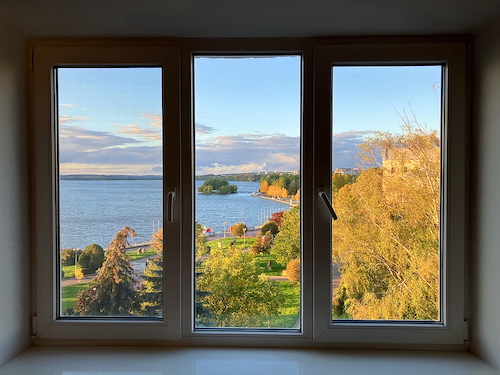 Enjoying time in nature close to home is associated with a greater sense of wellbeing compared with longer and more intense nature excursions.
Enjoying time in nature close to home is associated with a greater sense of wellbeing compared with longer and more intense nature excursions.
Research published in People and Nature found that nearby nature engagement had greater positive outcomes overall compared to experiencing nature second hand through media or through more strenuous excursions in nature.
“There have already been numerous studies on the beneficial effects of nature on well-being, but we wanted to go a little deeper to determine if these effects were equal across different forms of nature engagement. We hypothesized that all forms of nature engagement, whether through nature close to home (termed nearby nature in the study), or engagement that required more travel or resources (nature excursions), or indirectly through reading, online viewing, or watching tv (nature media) would be beneficial. The well-being outcomes we were particularly interested in were related to things we thought people were experiencing during the pandemic – loneliness, rumination, emotional impact, and mental health,” Tina Phillips, lead author of the study and assistant director of the Center for Engagement in Science and Nature at the Cornell Lab told Theravive.
“We found a clear and positive association between nearby nature and three of the four well-being outcomes: rumination, emotional impact, and mental health.
We also found that people who reported have a stronger psychological connection to nature also reported experiencing less loneliness and better mental health.”
Phillips and her colleagues were inspired to undertake the study when in June of 2020, a few months into the pandemic, they noticed an increase in demand for their online ornithology resources.
Ornithology is the study of birds.
“The number of online Bird Academy course subscriptions purchased in 2020 was up 157% from the previous year. Other projects and programs like eBird, NestWatch, Merlin and BirdCams were also seeing unprecedented increases. This got us wondering what the effect of this potential increase in nature exposure might be for people during such challenging times,” she said.
In undertaking their study, the researchers conducted a survey of more than 3200 people living in the United States in October 2020. This was six months into the pandemic and lockdowns were still in place in many places.
They asked those responding to the survey to rate how lonely they were, their mental well-being, whether they had repetitive negative thoughts and whether they were emotionally impacted by the pandemic.
They were also asked what type of nature engagement they participated in during the pandemic from three categories.
Nearby nature referred to activities that were close to home like taking a walk, doing gardening, bird watching or looking at nature through a window.
Nature media involved having indirect exposure to nature through documentaries, reading or wildlife cameras.
Nature excursions involved nature experiences that required travel or planning like backpacking, kayaking and fishing trips.
Some of the results were unexpected.
“What really surprised us was that nature engagement that happened through nature excursions such as camping, fishing, hunting, backpacking, was associated with more loneliness, greater emotional impact, and worse mental health. Further, nature media showed negative associations with all of the well-being outcomes we measured,” Phillips said.
But she cautions that these were not a causal relationship, so it is not possible to determine the direction of the association between nature excursions and loneliness.
“In other words, it might be that people who are lonelier actually seek out more solitary activities such as hunting or fishing. Another surprising finding was that the older someone was, the better their overall well-being was. This is well documented in the literature, but we didn’t expect to see this even during a pandemic. Less surprising was that in general, people with higher reported incomes, more education, and living in non-urban areas also reported better overall well-being.”
The researchers say their study emphasizes that people don’t need to travel far to experience the benefits of nature.
“Even for people who are home bound or mobility impaired, watching nature out the window, gardening, or putting up a bird feeder can be extremely beneficial and can be done in small doses, even 10 minutes is enough to restore attention and decrease stress,” Phillips said.
“Nearby nature is not only close, but it’s familiar, so we may have pre-existing place-based bonds to certain areas that we know and love. These place bonds may make us care more deeply for a place and want to spend more time in them. Nearby nature is also very easy to access, so there’s no added stress of having to plan, or packing up lots of gear, or traveling long distances or spending a lot of money, all of which can contribute to one’s stress levels.”
Elizabeth Pratt is a medical journalist and producer. Her work has appeared on Healthline, The Huffington Post, Fox News, The Australian Broadcasting Corporation, The Sydney Morning Herald, News.com.au, Escape, The Cusp and Skyscanner. You can read more of her articles here. Or learn more about Elizabeth and contact her via her LinkedIn and Twitter profiles.